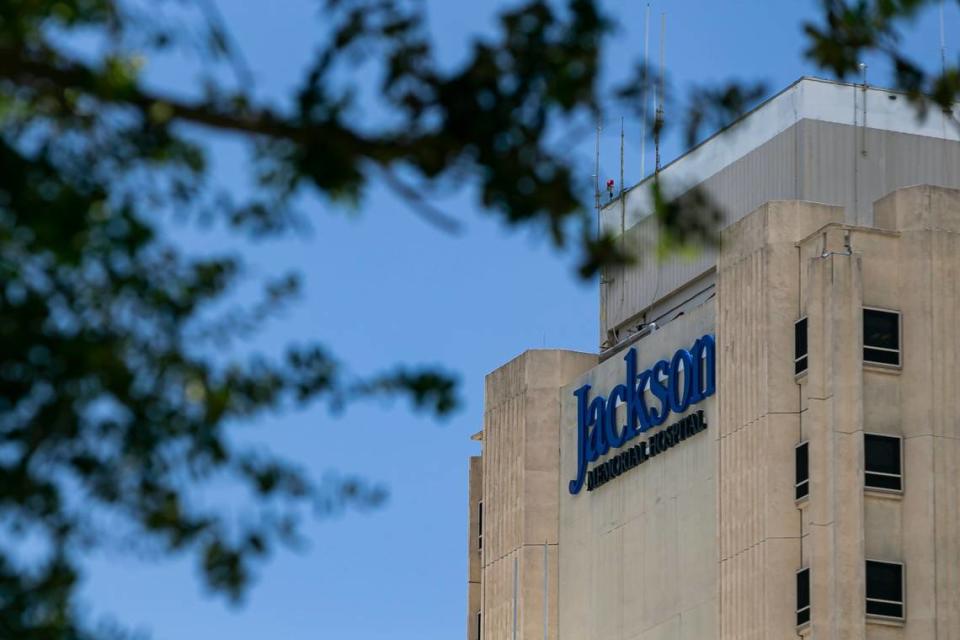Miami researchers to hunt for mutated coronavirus strains in Jackson hospital patients
Researchers at the University of Miami are shifting their labs to monitor for new strains of the evolving COVID-19 virus, hoping to better understand which mutated versions, or “variants,” are circulating in South Florida, and to what degree.
The pivot at South Florida’s prominent research university comes as federal officials at the U.S. Centers for Disease Control and Prevention on Friday released a study indicating a new strain, B.1.1.7, also called the “U.K. variant,” could dramatically worsen the pandemic.
Using a modeling study, federal officials warned of the strain quickly becoming the predominant strain of COVID virus circulating in the country by March.
“This could grow exponentially,” Dr. David Andrews, a pathologist and University of Miami professor leading the effort to hunt for the mutant coronaviruses in South Florida, said of the new strain.
UM is harnessing its partnership with Jackson Health System, Miami-Dade’s public hospital, to identify mutant strains — including the U.K. variant — using custom-tailored molecular tests designed to pick them up in patients. Once discovered, the strains can undergo further analysis that will also examine whether the variants behave differently in the clinical setting.
Though the two vaccines currently authorized in the U.S. are thought to work against the new strain, preliminary studies have produced startling estimates about the strain being about 56% more transmissible. It has already become the dominant strain in Ireland.
Like most of the U.S., Florida’s state health officials have lagged in monitoring for variants of the novel coronavirus. Working under constrained funding, Florida’s health department has analyzed about 3,000 samples of the SARS-CoV-2 virus since the pandemic began.
Among those, health officials in Florida have identified 22 cases of the so-called “U.K. variant” as of Friday. That strain is raising alarms as it is discovered in more than 50 countries since being first identified in September in Kent, England.
“Everyone seems to be going after this B.1.1.7 — that’s it, that’s the bad player,” Andrews said. “We’re going to go right after that one.”
But Andrews added that there is no reason yet to panic. There’s no evidence that the mutant virus is deadlier or more severe, he said, and physical distancing plus masks will still work to prevent infections, as will vaccines, based on the preliminary evidence.
“People just need to be more careful,” Andrews said, stressing that the virus, mutated or not, demands public health precautions.
His comments came as Miami-Dade County on Friday surpassed 4,500 deaths since the pandemic began, with the county adding about 100 hospital patients or more per day as the virus continues to spread freely in the face of limited vaccination efforts.
The Miami researchers will monitor for mutations in the virus in Jackson hospital patients by using custom designed tests that look for various genetic signatures. Andrews said his team will test for all of the known variants as they get new samples in the lab, producing results within 24 hours.
That includes variants first discovered in South Africa and Brazil, with the Brazilian mutation of particular concern given travel patterns to Miami. That strain, known as “P1,” is still being studied by scientists, but it may also be more contagious than the initial strain, prompting British officials to close travel to Latin America.
The UM tests work by looking for the known mutations, but eventually, Andrews said his team will set up “discovery” testing to look at the whole virus for changes not yet observed by other scientists.
“We’re all in the business of discovering, looking for changes,” Andrews said. “The B.1.1.7 itself may morph into another sub variant, and we want to be on the cutting edge of making those discoveries.”


